
The Food and Drug Administration has accepted and granted priority review to a new drug application for sunvozertinib.

A nationally-published, award-winning journalist, Alex Biese joined the CURE team as an assistant managing editor in April 2023. Prior to that, Alex's work was published in outlets including the Chicago Sun-Times, MTV.com, USA TODAY and the Press of Atlantic City. Alex is a member of NLGJA: The Association of LGBTQ+ Journalists, and also performs at the Jersey Shore with the acoustic jam band Somewhat Relative.

The Food and Drug Administration has accepted and granted priority review to a new drug application for sunvozertinib.

The investigational anti-PD-1 monoclonal antibody is showing positive topline results from the phase 3 CREST trial.

From the death of folk music star Peter Yarrow of Peter, Paul and Mary to good news from broadcasting legend Dick Vitale, here is this week’s news.

For patients with advanced or recurrent endometrial cancer, first-line Lenvima plus Keytruda didn’t significantly improve outcomes versus chemotherapy.

Low-dose oral minoxidil, the hair growth drug that is the active ingredient in Rogaine, may be safe and effective for patients with breast cancer.

First-line Rybrevant plus Lazcluze improved survival versus the current standard of care in patients with mutated advanced or metastatic NSCLC.
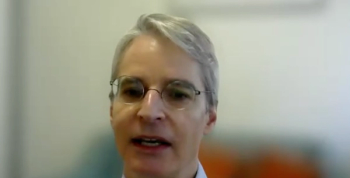
CURE spoke with an expert about the potential positive effects of psilocybin-assisted psychotherapy.

CBD consumption was safe but did not have a statistically significant reduction in scan-related anxiety versus placebo for patients with breast cancer.

Ann Graham of MIB Agents discussed some of the challenges adolescent and young adult patients deal with after cancer diagnoses.

From tennis star Gabriela Dabrowski sharing details of her breast cancer journey to Greg Gumbel and Linda Lavin dying, here is the latest cancer news.

An expert explained recent findings from a study of pregnant women with breast cancer who underwent chemotherapy and fared better than nonpregnant patients.

Throughout the year, CURE® contributors shared personal stories and reflections highlighting the multifaceted nature of cancer care.

NX-5948 has received fast track designation for adults with relapsed or refractory Waldenström macroglobulinemia who received at least two prior lines of therapy.

From the benefits of early adoption to the effectiveness of telehealth, here is what we reported about palliative care throughout the year.

This marks the second FDA approval of Tevimbra this year.
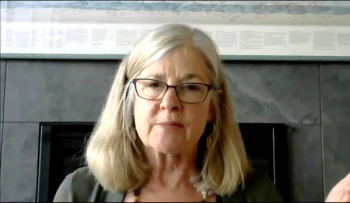
An expert spoke with CURE® about the importance of information that can be gained from genetic testing for patients with breast cancer.
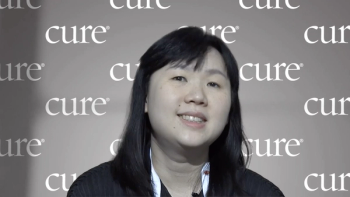
The treatment combination was found to reduce the risk of follicular lymphoma progression or death by 57%, a study has shown.
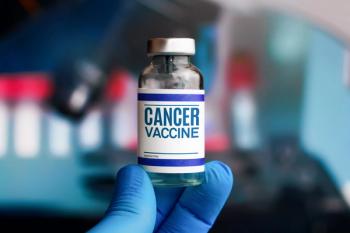
With breakthroughs from melanoma to pancreatic cancer, this has been a year of great promise in the field of cancer vaccines.
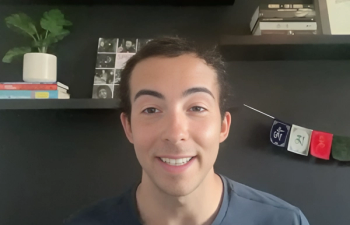
After sharing his cancer story online, Jace Yawnick is in a state of technical remission after receiving a diagnosis of non-Hodgkin lymphoma at age 25.

The FDA has granted breakthrough therapy designation Trodelvy for adults with extensive-stage small cell lung cancer who progressed on/after chemotherapy.

From a Pro Football Hall of Famer announcing his diagnosis to an R&B star’s latest update, here’s what’s happening in the cancer space this week.

CURE® spoke with an expert about follicular lymphoma, a disease that is still considered incurable.

The Food and Drug Administration has approved Ensacove for patients with ALK-positive locally advanced or metastatic non-small cell lung cancer who have not previously received an ALK-inhibitor.

An expert advises a few things to keep in mind when patients with cancer are navigating these platforms.
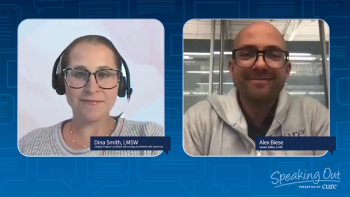
An expert explained the impact that burnout can have on someone caring for a loved one with cancer.

Caregivers shouldn’t hesitate to ask for help when it comes to coordinating care for a loved one.

From counseling services to wellness workshops, there is a wide array of resources potentially available to caregivers, as an expert explained.

An expert explained that improved communication will make caregivers of loved ones with cancer feel less isolated.

Black patients may be more affected by certain side effects from Talvey compared with White patients with multiple myeloma, an expert told CURE®.

CAN-2409 resulted in disease-free survival improvements for patients with high-risk, localized prostate cancer.